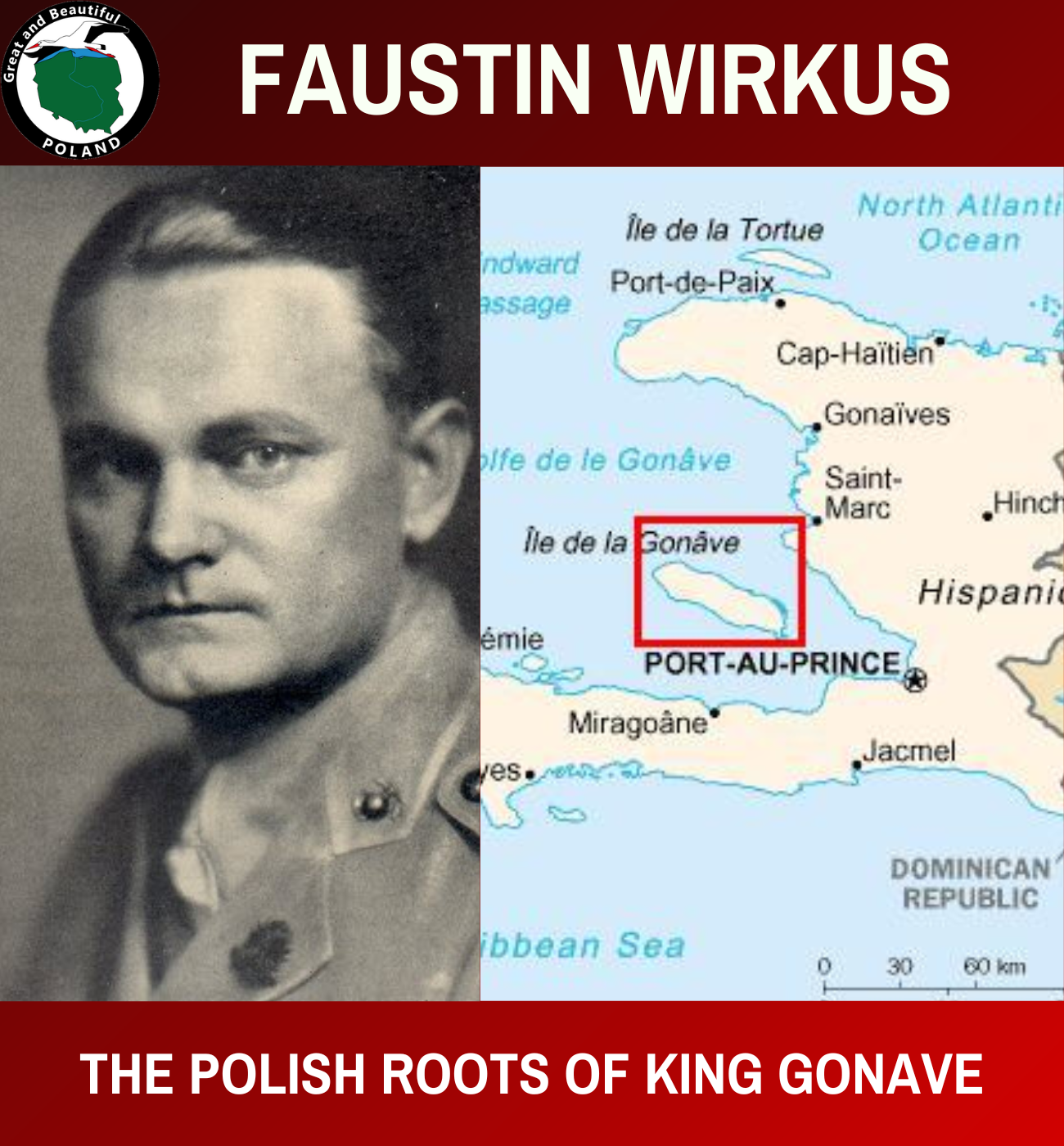🇬🇧 FAUSTIN WIRKUS - THE POLISH ROOTS OF KING GONAVE
Faustin Wirkus was an American🇺🇸 Marine infantry non-commissioned officer, the son of Polish🇵🇱 immigrants👨👩. He arrived in Haiti🇭🇹 at the age of nineteen, as a soldier🪖 when US troops entered the country. In 1920 he ended up on the island🏝️ of La Gonâve, where he took part in the arrest of Ti Memenne, who was accused of performing voodoo rituals🧙♀️.
The woman recognized in Wirkus the reincarnation of the former Haitian emperor Faustin I Soulouque🫅🏿, exiled from the country more than sixty years earlier after unsuccessful wars with the Dominican Republic🇩🇴 and a mutiny in the army. Wirkus was soon dubbed Faustin II by the locals. Military superiors took advantage of this and appointed him administrator of the islet in 1925.
His status among the Gonave locals remained problematic for the American administration, especially the Haitian president who visited the island in 1928. To avoid diplomatic complications, he was recalled to Port-au-Prince in 1929. In February 1931, he resigned from the army.
He gained popularity with a book📖 published in 1929 by William B. Seabrook entitled. "Magic Island," of which he became the main character. As an expert on Caribbean beliefs, he gave lectures🧑🏫 on Haiti, and made the 1933 documentary🎞️ Voodoo on voodoo culture and religion.
🇵🇱 FAUSTIN WIRKUS - POLSKIE KORZENIE KRÓLA GONAVE
Faustin Wirkus był amerykańskim🇺🇸 podoficerem piechoty morskiej, synem polskich🇵🇱 emigrantów👨👩. Na Haiti🇭🇹 trafił w wieku dziewiętnastu lat, jako żołnierz🪖, gdy wojska USA wkroczyły do tego kraju. W 1920 roku trafił na wyspę🏝️ La Gonâve, gdzie brał udział w aresztowaniu Ti Memenne, oskarżonej o odprawianie rytuałów voodoo🧙♀️.
Kobieta rozpoznała w Wirkusie reinkarnację dawnego haitańskiego cesarza Faustyna I Soulouque’a🫅🏿, wygnanego z kraju ponad sześćdziesiąt lat wcześniej po nieudanych wojnach z Dominikaną🇩🇴 i po buncie w armii. Wkrótce Wirkus został obwołany przez miejscowych Faustynem II. Wojskowi zwierzchnicy wykorzystali to i mianowali go w 1925 roku administratorem wysepki.
Jego status wśród mieszkańców Gonave pozostawał problematyczny dla amerykańskiej administracji, a szczególnie dla haitańskiego prezydenta który odwiedził wyspę w 1928 roku. Celem uniknięcia komplikacji dyplomatycznych został w 1929 roku odwołany do Port-au-Prince. W lutym 1931 roku wystąpił z armii.
Popularność zyskał dzięki wydanej w 1929 roku książce📖 Williama B. Seabrooka pt. „Magiczna wyspa”, której stał się głównym bohaterem. Jako ekspert w dziedzinie karaibskich wierzeń prowadził wykłady🧑🏫 poświęcone Haiti, nakręcił także film dokumentalny🎞️ Voodoo z 1933 na temat kultury i religii voodoo.
